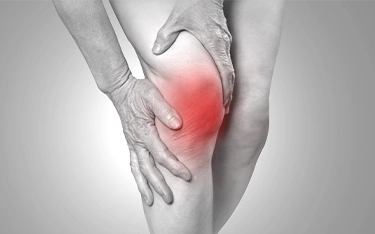Erectile Dysfunction (ED) affects more than physical performance, it strikes at confidence, intimacy, and emotional well‑being. In India, over 30% of men above 40 experience some form of ED, yet stigma often keeps them from seeking help
Whether it starts with occasional difficulties or becomes a persistent hurdle, understanding the underlying causes, be they medications, chronic illnesses, hormonal shifts, stress, or relationship issues, is the first step toward lasting recovery.
This blog explores ED symptoms, uncovers physical and emotional causes, shares prevention tips, and shows how Dr Batra’s® holistic homeopathy approach can restore not just function, but confidence and quality of life.
Erectile Dysfunction Essentials: Causes, Symptoms & Next Steps
Erectile Dysfunction (ED) can stem from physical issues,like medications, diabetes, or hormonal imbalances or emotional factors such as stress, anxiety, and relationship strain. Watch for persistent trouble achieving or maintaining an erection, low libido, or intimacy-related anxiety.
If these symptoms last beyond a few weeks or impact your confidence and relationships, seek a confidential consultation. At Dr Batra’s®, we combine medical evaluation with tailored homeopathic care to target both symptoms and root causes.
Key Symptoms of Erectile Dysfunction
- Difficulty getting or maintaining an erection: This is the most common sign, often triggered by poor blood flow or stress.
- Reduced sexual desire or libido: Hormonal imbalances, fatigue, or emotional disconnection may lower your interest in intimacy.
- Delayed or premature ejaculation: Disrupted sexual response can result from psychological pressure or nerve sensitivity.
- Emotional distress and low confidence: Repeated difficulties can lead to anxiety, low self-esteem, and even relationship issues.
Insights into global study
Many assume ED only affects older men, but a global multi-centre study by Rosen et al., part of the Global Study of Sexual Attitudes and Behaviors, found that 8% of men in their 20s and 11% in their 30s experience ED. Stress, lifestyle, and hidden health issues are often to blame.
Common Causes of Erectile Dysfunction
ED is typically caused by a combination of physical and emotional factors:
Physical Causes
- Medications: Certain antidepressants, blood pressure pills, and diabetes drugs may interfere with nerve signals or blood flow.
- Chronic Illnesses: Diabetes, heart disease, and kidney problems can damage nerves and vessels that support erection.
- Surgeries: Procedures on the prostate, bladder, or spine can affect the nerves and tissues required for sexual function.
- Smoking and Alcohol: Both reduce blood circulation and affect the nervous system, increasing ED risk over time.
- Hormonal Imbalance: Low testosterone levels or thyroid issues can contribute to reduced libido and erectile problems.
Emotional & Psychological Causes
- Stress and Anxiety: Work pressure, financial worries, or performance anxiety can interfere with sexual response.
- Depression: Low mood or mental fatigue often suppresses libido and energy levels.
- Relationship Issues: Poor communication or emotional disconnect with a partner can impact intimacy.
- Body Image & Self-Esteem: Negative self-perception or past trauma can lower confidence in sexual situations.
- Chronic Fatigue or Sleep Disorders: Lack of rest affects hormone regulation and overall energy.
Dr Batra’s® pro tip:
Don’t let embarrassment keep you from seeking help, if ED lasts more than a few weeks, consult a qualified doctor. Many cases are reversible with the right medical and emotional support. Avoid self‑medicating or masking symptoms, as this can delay proper treatment and worsen underlying issues.
Can Stress and Anxiety Cause Erectile Dysfunction?
Stress, be it from work, finances, or relationships, raises cortisol levels, which can reduce blood flow and nerve signaling needed for an erection. Performance anxiety or past sexual setbacks often create a cycle: worry leads to difficulty, which fuels more worry. Breaking this cycle with stress management, counseling, or relaxation techniques can restore natural function.
Getting Help for Erectile Dysfunction
Delaying treatment for ED not only prolongs distress but may also mask or worsen underlying conditions such as cardiovascular disease, diabetes, or hormonal imbalances. Early intervention can:
- Identify Health Risks: A thorough evaluation may uncover high blood pressure, cholesterol issues, or early heart disease.
- Prevent Emotional Toll: Restoring function quickly helps rebuild self‑esteem and relationship intimacy.
- Expand Treatment Options: The sooner you seek help, the wider the range of therapies, from lifestyle changes and counseling to homeopathic or conventional medicines, available to you.
At Dr Batra’s®, each consultation begins with a discreet health and lifestyle assessment, followed by personalised recommendations to address both mind and body.
Other Physical and Emotional Factors
While stress and anxiety are significant contributors, several other factors can play a role in ED:
- Diabetes & High Blood Pressure: These conditions damage blood vessels and nerves, reducing penile blood flow.
- Hormonal Imbalances: Low testosterone or thyroid dysfunctions can diminish libido and erectile capacity.
- Chronic Fatigue & Sleep Disorders: Poor sleep impairs hormone regulation and energy levels, affecting sexual performance.
- Past Trauma or Body Image Issues: Unresolved emotional trauma or negative self‑perception can inhibit arousal and confidence.
- Low Self‑Esteem & Guilt: Persistent feelings of inadequacy or shame can create mental barriers to intimacy.




